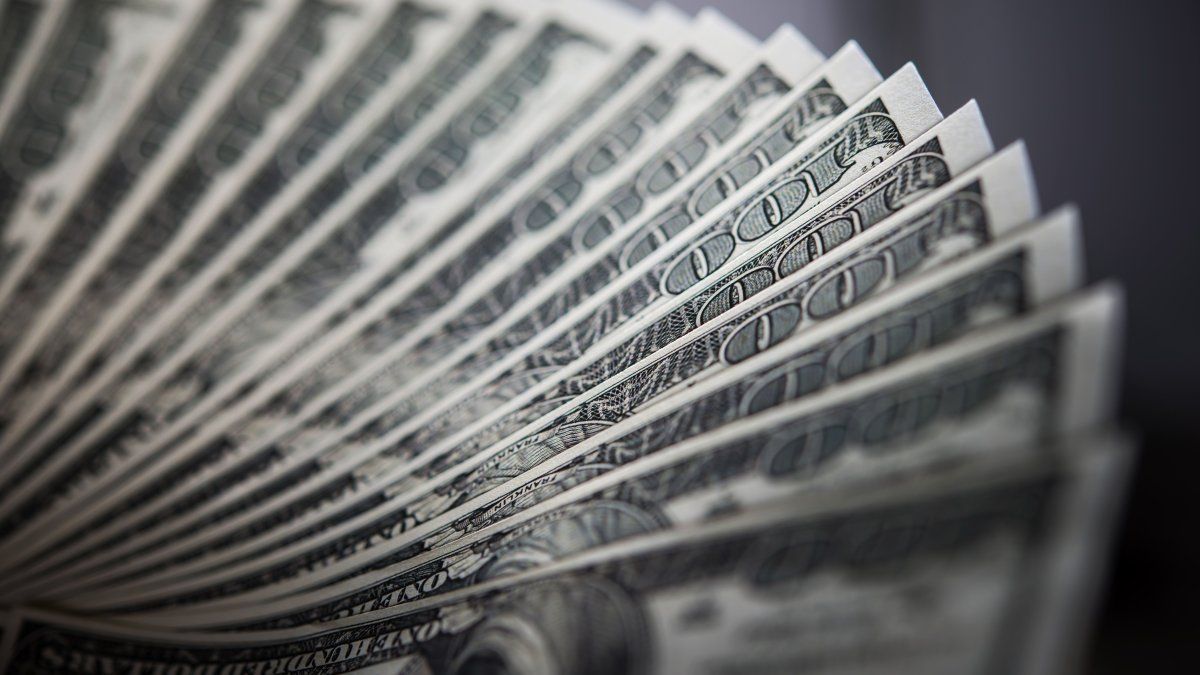A survey carried out in international cooperation between public and private institutions of Argentina, Brazil and Paraguayrevealed that the 91% of the population talks little or never about him money laundering.
Inside the campaignSee the Signs“, 38% consider that information about this criminal activity is difficult or extremely difficult to understand. In addition, 47% do not know any form of money laundering or how it can occur.
In the countries of the triple border, there is little interest in the forms of crime, according to the survey, and highlighted that the 63% believes that money laundering occurs through drug salesand only the 5% understand that it can also occur through formal business.
dollars .jpg
70% of people believe that money laundering and terrorist financing are crucial issues.
A relevant finding was that the 70% of the population does not know associated examples to this illegal act, which reinforces the existence of a gap in specific knowledge on the subject. According to the survey, the access to these topics It is mainly due to: 83% through television, 52% through social networks, 17% by radio, 14% through conversations between friends or family, 13% websites, and 6% by WhatsApp.
Beyond the little internalization of the matter, there is a general recognition of the importance of the matter, where the 70% believe that he money laundering and the terrorist financing They are crucial questions. Within this portion, 75% consider that these actions affect everyone, and only 30% believe that they negatively impact business and the country’s economy.
Origin of the “See the Signs” campaign
The study was carried out in 2023 with residents and merchants of Puerto Iguazú, Argentina; Ciudad del Este and Asunción and Gran Asunción, Paraguay; and Foz do Iguaçu, Brazil. They also participated tourists coming from other cities in Argentina. The survey addresses the relationship of consumers and merchants with this illicit activity and the level of understanding of residents and locals.
The investigation gave rise to the campaign “See the Signs“, an initiative of American Bar Association (ABA), with the support of public and private institutions in Argentina, which seeks to expand the knowledge about the risks, impact and how you are illicit operations strengthen organized crime. ABA is an American institution that brings together lawyers from the United States and has rule of law initiatives in Argentina and 50 other countries around the world.
What is money laundering
He money laundering is an expression used to justify and make “legal” amounts of resources that are illicitly obtained. The smuggling of products, weapons and drugs, in addition to kidnapping and human trafficking, are some illicit ways to obtain money and criminals need, in some way, “legalize” those resources.
That is why this crime is so common among drug traffickers and smugglers: people and organizations that not only launder money, but also promote violence and crime. As a consequence, there are innumerable damages for society: economic and social instability, tax evasion, increase in crime and corruption, weakening of the integrity of institutions and public well-being itself.
“Our aim is to bring information and knowledge to the public that If the money needs to be laundered it is because it is dirty money.and once it is dirty, it is necessary to understand that this money is already the result of a crime, be it drug trafficking, smuggling or even human trafficking, for example,” explained ABA Program Director Roli, Cesar Pastore.
According to the National Risk Assessment of Money Laundering and Terrorist Financing in Argentinathe projection is that the country moves approximately US$1.07 billion in illicit activities related to money laundering each year.
The study identified 1,386 causes of money laundering started between 2017 and 2020, making it possible to estimate an average value of more than US$3 million per casedrug crime was highlighted as the main threat, with 40,268 causes identified. There were also 4,743 cases related to crimes against public administration and 3,995 cases of customs crimes, among others.
Source: Ambito




